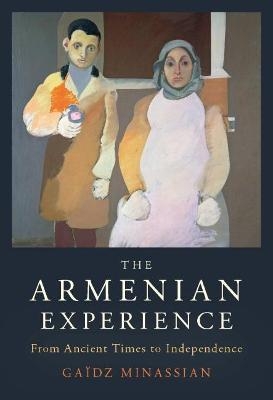
The Armenian Experience
I.B. Tauris (Verlag)
978-1-78831-224-0 (ISBN)
An in-depth study of history and memory, The Armenian Experience examines the characteristics and sentiments of a national identity that spans the globe. Armenia lies in the heart of the Caucasus and once had an empire – under the rule of Tigranes the Great in the first century BC – that stretched from the Caspian to the Mediterranean seas. Beginning with an overview of Armenia’s historic position at the crossroads between Rome and Persia, Minassian details invasions from antiquity to modern times by Arabs, Mongols, Ottomans, Persians and Russians right up to its Soviet experience, and drawing on Armenia’s post-Soviet conflict with Azerbaijan in its attempts to reunify with the disputed territory of Nagorno-Karabakh.
This book questions an Armenian self-identity dominated by its past and instead looks towards the future. Gaïdz Minassian emphasises the need to recognise that the Armenian story began well before the Genocide 1915, and continues as an on-going modern narrative.
Gaïdz Minassian is a lecturer in International Relations at Sciences Po, Paris Institute of Political Studies and a research associate at the Fondation pour la Recherche Scientifique (FRS) in Paris. He has been writing for Le Monde since 2001 and has published many books on the politics of Armenia and the Caucasus.
Introduction
Part I: Memory and History of a Domination
Chapter 1: International domination
Chapter 2: Political and religious domination
Chapter 3: Socioeconomic domination
Part II: Attempts to break from the History
Chapter 1: The Revolutionary movement, 1878-1914
Chapter 2: Finding a new historicity to a fragmented identity, 1920-1988
Chapter 3: Rebirth of a sovereign state, 1988-1998
Part III: Power of Memory
Chapter 1: Glory and misery of the cultural haitadist revolution
Chapter 2: The Armenian State’s memory politic, 1998-now
Chapter 3: Turkey, an exceptional case of negationism
Part IV: Beyond the Genocide
Chapter 1: Democratisation of the identity
Chapter 2: Voices and ways to dialog with the Turks
Chapter 3: Supporting the international and scientific community’s engagement
Conclusion
Bibliography
Acknowledgment
| Erscheinungsdatum | 02.06.2020 |
|---|---|
| Sprache | englisch |
| Maße | 156 x 234 mm |
| Gewicht | 581 g |
| Themenwelt | Sachbuch/Ratgeber ► Geschichte / Politik ► Allgemeines / Lexika |
| Geisteswissenschaften ► Geschichte ► Allgemeines / Lexika | |
| Geisteswissenschaften ► Geschichte ► Regional- / Ländergeschichte | |
| Sozialwissenschaften ► Politik / Verwaltung ► Politische Systeme | |
| Sozialwissenschaften ► Soziologie | |
| ISBN-10 | 1-78831-224-4 / 1788312244 |
| ISBN-13 | 978-1-78831-224-0 / 9781788312240 |
| Zustand | Neuware |
| Haben Sie eine Frage zum Produkt? |
aus dem Bereich


